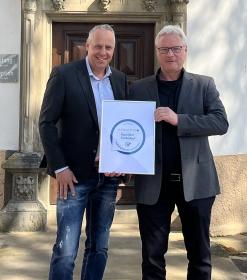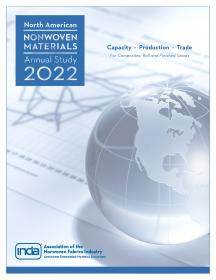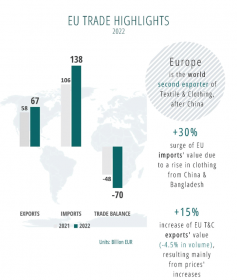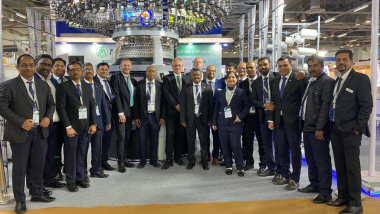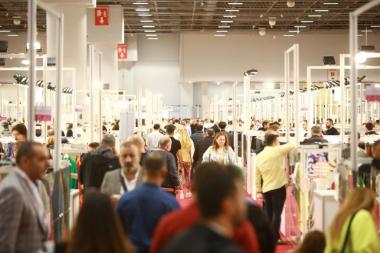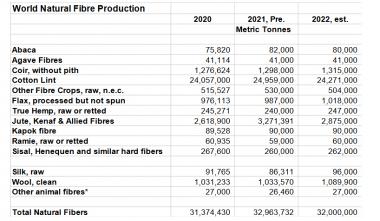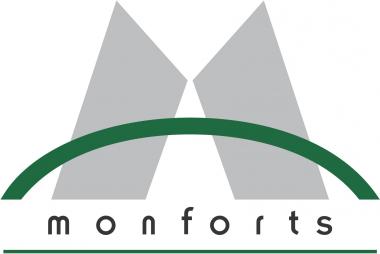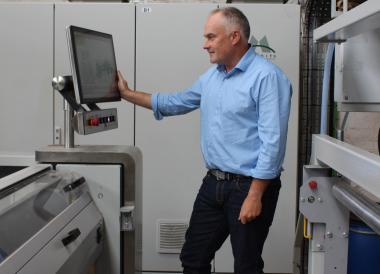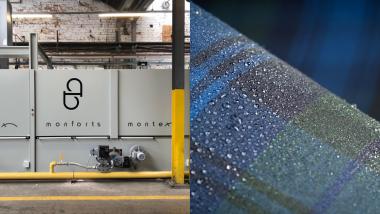First Hohenstein Quality Label Tested Pet Supplies awarded
To ensure that our four-legged pets are looked after in terms of product safety, quality and durability of their cuddly blankets, cushions or favorite toys, the testing service provider Hohenstein has established its quality label Tested Pet Supplies. In May 2023, Markus Tiemann, Hohenstein Global Head of Retail, had the pleasure of handing over the first quality certificate of its kind to Bernd Brunssen, Head of Quality Assurance at Carstensen Import Export Handelsgesellschaft mbH, located near Hamburg.
The bar for quality products is set high at the globally networked importer and distributor, and the company accordingly commissioned product-testing with Hohenstein testing laboratory from its existing range of dog cushions, toys for dogs and cats, pet transport boxes and food balls for dogs and cats.
The label is designed for the entire range in pet supplies, from chew toys to pet beds, with special attention to the high requirements for textiles. It provides consumers with clear product information on product safety, quality and durability, and also offers pets and their owners security against unwanted residues of chemical substances. Markus Tiemann adds, "To ensure that our four-legged darlings feel completely at ease, we can, depending on the intended use also include additional tests for example chew resistance, scratch resistance, outdoor suitability, water repellency, waterproofness or air permeability and include these in the claim, alongside standard tests."
Hohenstein


